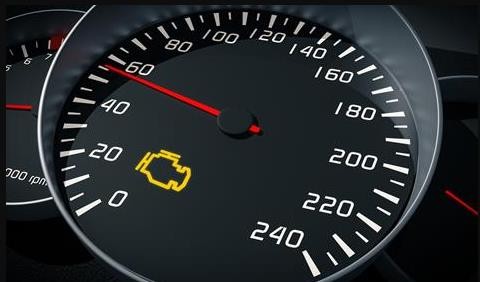A failing knock sensor can disrupt your engine’s performance, leading to issues like misfires. But how exactly does this happen? This article dives into the relationship between knock sensors and misfires, outlining the symptoms of a bad knock sensor and offering solutions to prevent engine damage.
A knock sensor is a small device that detects engine knocking, also known as detonation or pinging. This harmful noise indicates premature ignition of the air-fuel mixture in your engine’s cylinders. The sensor alerts the engine control unit (ECU), which adjusts the ignition timing to prevent damage. A malfunctioning knock sensor can’t accurately detect knocking, leading to incorrect timing adjustments by the ECU. This can result in a variety of performance problems, including misfires.
How a Bad Knock Sensor Leads to Misfires
A faulty knock sensor can trigger misfires in several ways:
Incorrect Ignition Timing
The primary role of a knock sensor is to inform the ECU about engine knocking so it can adjust the ignition timing. A bad sensor might fail to detect knocking or send false signals. This results in the ECU advancing or retarding the ignition timing inappropriately. When the spark plug fires at the wrong time, the air-fuel mixture doesn’t ignite properly, leading to a misfire.
Reduced Engine Power
When a knock sensor malfunctions, the ECU might enter a “safe mode” to prevent engine damage. This often involves retarding the ignition timing significantly, reducing engine power and potentially causing misfires.
Symptoms of a Bad Knock Sensor
Beyond misfires, a failing knock sensor exhibits other symptoms:
Check Engine Light
A malfunctioning knock sensor often triggers the check engine light. Using an OBD-II scanner, you can retrieve trouble codes related to the knock sensor, such as:
- P0325: Knock Sensor Malfunction (Sensor 1, Bank 1)
- P0326: Knock Sensor Range/Performance (Sensor 1, Bank 1)
- P0327: Knock Sensor Low Input (Sensor 1, Bank 1)
- P0328: Knock Sensor High Input (Sensor 1, Bank 1)
Engine Knocking or Pinging
You might hear a knocking or pinging sound from your engine, especially under acceleration or load. This is a clear sign of detonation, indicating a potential knock sensor issue.
Poor Fuel Economy
A bad knock sensor can lead to inefficient fuel consumption as the engine might not be operating at its optimal settings.
Reduced Performance
You might notice decreased engine performance, including sluggish acceleration and reduced power output.
Diagnosing a Bad Knock Sensor
To confirm a faulty knock sensor, mechanics use several methods:
- Scanning for Trouble Codes: Using an OBD-II scanner to retrieve diagnostic trouble codes.
- Testing Knock Sensor Voltage: Measuring the voltage output of the knock sensor with a multimeter.
- Visual Inspection: Examining the knock sensor and its wiring for damage or corrosion.
Preventing Knock Sensor Issues
-
Use Quality Fuel: Using the correct octane fuel recommended by your vehicle’s manufacturer.
-
Regular Maintenance: Adhering to your vehicle’s recommended maintenance schedule, including spark plug and air filter replacements.
Conclusion
A bad knock sensor can indeed cause misfires, along with other performance problems. Addressing this issue promptly is crucial to prevent costly engine damage. By understanding the symptoms and diagnostic procedures, you can ensure your engine runs smoothly and efficiently. If you suspect a knock sensor problem, consult a qualified mechanic for diagnosis and repair. Ignoring a failing knock sensor can lead to significant engine damage, requiring extensive and expensive repairs.

